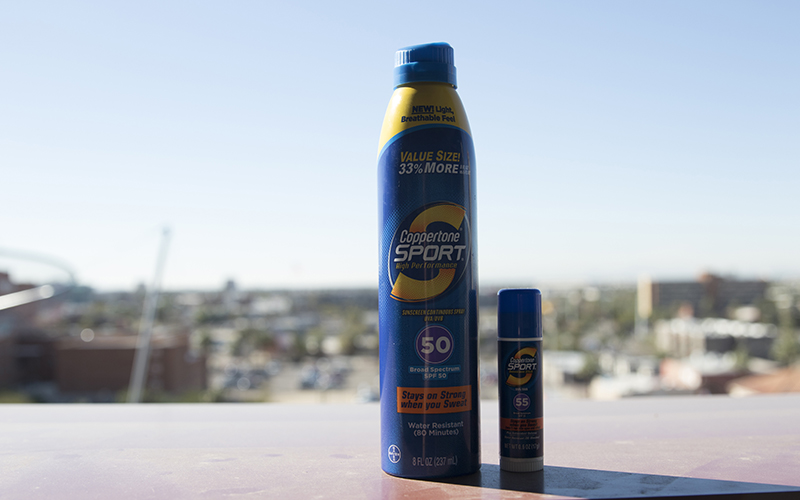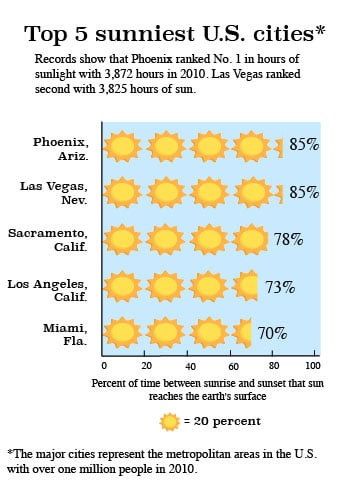
House Bill 2134, if passed, would allow children to carry and apply sunscreen on school grounds.(Photo by Josh Orcutt/Cronkite News)
PHOENIX – Phoenix is one of the sunniest cities in the United States, and yet some school districts don’t allow students to apply sunscreen while on school property without a doctor’s note or prescription.
A bill working its way through the state Legislature would change that. If it became a law, House Bill 2134 would allow students at any public school, charter school and camp to carry and apply sunscreen at school without a note or prescription.
The bill also would allow employees and volunteers to assist students in applying sunscreen if a parent gives written consent.
Because the U.S. Food and Drug Administration regulates sunscreen as an over-the-counter drug, many school policies require a written doctor’s note to use the product at school.
Rep. Heather Carter, R-Cave Creek, said that’s ridiculous. She introduced the bill because Arizona has sunshine practically year round, and sunscreen application is a part of a person’s daily routine.

Source: Current Results
(Graphic by Taylor Notah/Cronkite News)
“This is common-sense legislation that is extremely important in Arizona given our climate and exposure to sun,” Carter said. “The way our schools are designed is they have exposure during the day to the sun either by going back and forth to class or going outside for recess or standing waiting for a bus or parent to pick them up.”
Arizona School Boards Association spokeswoman Heidi Vega said every district handles the sunscreen issue differently. If the bill passes, it’s essentially up to the individual school district to change its policy.
Arizona will become the fourth state in the country to permit sunscreen in school if the bill becomes a law. Other states that have similar legislation are California, Oregon and Texas, according to the Journal of the American Medical Association.
Dr. Aaron Mangold, president of the Arizona Dermatology and Dermatologic Surgery Society, approached Carter with the idea for the bill.
“The regularity of sunscreen shouldn’t really be the school’s policy to prohibit. … If the parent says sunscreen is good for my kid, then they should be able to reapply it when they’re at school,” Mangold said. “This bill will allow parents to make the decisions.”
Both Carter and Mangold said this legislation empowers parents and educates kids about the importance of sunscreen use.
Local health groups and parents support the bill, and national health groups are advocating for similar legislation to stress the seriousness of sunscreen to decrease skin cancer.
“There is an outpouring of support from providers and parents, and I really haven’t heard anyone that is opposing the bill,” Carter said.
Since June 2013, both the American Society for Dermatologic Surgery Association and the American Medical Association have publicly supported the availability of sunscreen in school.
According to research published in the Journal of the American Academy of Dermatology, the majority of Americans do not regularly use sunscreen to protect themselves from the sun’s harmful UV rays.
“The long-term impact that we want to see is by allowing kids to apply sunscreen at school, we want to see that number of 11 percent regularly using sunscreen turn into 20, 30, 40 or 50 percent because we can see an increase in skin cancer,” Mangold said.
Mangold suggests that people use a minimum SPF 30 and reapply after 40 to 80 minutes in the sun.